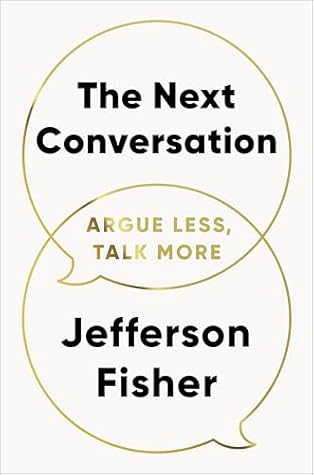More on this book
Community
Kindle Notes & Highlights
Read between
March 18 - April 5, 2025
I became proficient at teaching my siblings how to communicate their needs and understand the needs of one another.
whenever I didn’t know what to say to someone: “Well, what do you want them to know?”
“Well, what do you want them to know?”
It’s about choosing courage over comfort, even when your voice shakes.
Speaking directly doesn’t mean you lack empathy or consideration for the other person’s feelings. Being direct means that you have the self-assurance that you can respect the other person, as well as yourself, enough to communicate your needs openly without fear.
What I became more curious about, however, was the disproportionality of his reaction. Anytime someone takes a level one conversation and jumps it up to level ten, it’s telling. And what it tells you is that there’s another conversation happening inside that person’s head that you weren’t invited to. Something hidden has taken over their filter and is now driving their reactions. You’re only seeing the tip of the iceberg. What else is at play? Who am I really talking to? I intended to find out.
The person you see isn’t the person you’re talking to.
It’s this other person you’re talking to—the person you don’t know—who you need to reach for when conflict starts to tear you apart.
Winning an argument is a losing game. Winning means that you’ve likely lost something far more valuable—their trust, their respect, or worse, the connection. The only reward you’ve won is their contempt.
The next conversation has the benefit of hindsight and reflection, an understanding of what was missing from the first go-around. There’s so much you can do in the next conversation: reframe, apologize, laugh over it.
At the most basic level, your goals for every conversation should align with this mindset: Have something to learn, not something to prove.
Compare these pie-in-the-sky goals with those that are actually within reach: Unrealistic goals: Hoping for an immediate apology and an admission of “You were right” Expecting them to accept your opinion without question Believing one conversation will cure all other underlying relationship problems Assuming the discussion will naturally lead them to seeing everything from your perspective Thinking they will concede and fall on the sword of every point you throw out Realistic goals: Ensuring that the other person knows you care about them Gaining a better understanding of where the other
...more
An easy exercise to help you find your personal values is to poll the person who knows you best, like a close friend, your partner, or a family member. Ask this person each of the following questions and write down their response. What do you think I find important in my life based on my daily conversations? What are three words you would use to describe my character to someone who doesn’t know me? What topics of conversation do I get most enthusiastic about? What quality is most important to me in the friendships I have? What emotion do you wish I’d show more of?
When it’s time for you to walk into your own next conversation, don’t just rely on how it went in your head. Be realistic. Be intentional. These questions will help: What is my goal for this conversation? Which of my values do I need to meet that goal? By keeping conversational goals and values in mind, you put connection within reach. Who will your next conversation be with? What conversation needs to happen but hasn’t yet? Rather than trying to solve all your problems in one fell swoop, focus on one smaller, more manageable conversation. Then later, have another. And another, until
...more
Chapter Summary Your first step toward connection is as easy as your next conversation. Believing that a difficult conversation will go exactly as you heard it playing out in your mind is setting yourself up for disappointment. Stop putting too much pressure on a single conversation. Lower your expectations and build on the mindset of having something to learn, not something to prove. Set realistic targets for the conversation aimed at gaining understanding instead of grabbing for quick (and unrealistic) wins. Support the goal with your values, the rules you’ll follow to make sure you show up
...more


